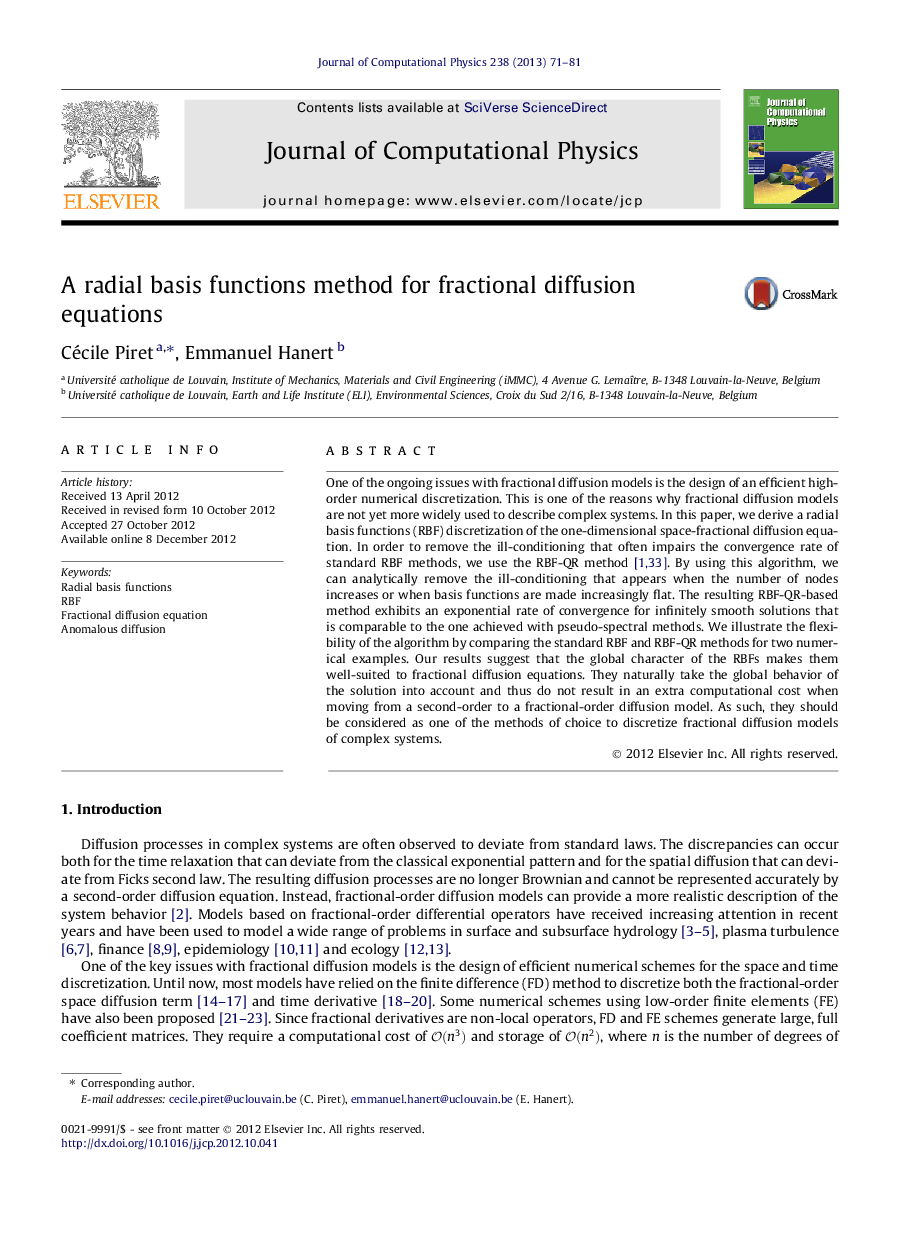| Article ID | Journal | Published Year | Pages | File Type |
|---|---|---|---|---|
| 520479 | Journal of Computational Physics | 2013 | 11 Pages |
One of the ongoing issues with fractional diffusion models is the design of an efficient high-order numerical discretization. This is one of the reasons why fractional diffusion models are not yet more widely used to describe complex systems. In this paper, we derive a radial basis functions (RBF) discretization of the one-dimensional space-fractional diffusion equation. In order to remove the ill-conditioning that often impairs the convergence rate of standard RBF methods, we use the RBF-QR method [1] and [33]. By using this algorithm, we can analytically remove the ill-conditioning that appears when the number of nodes increases or when basis functions are made increasingly flat. The resulting RBF-QR-based method exhibits an exponential rate of convergence for infinitely smooth solutions that is comparable to the one achieved with pseudo-spectral methods. We illustrate the flexibility of the algorithm by comparing the standard RBF and RBF-QR methods for two numerical examples. Our results suggest that the global character of the RBFs makes them well-suited to fractional diffusion equations. They naturally take the global behavior of the solution into account and thus do not result in an extra computational cost when moving from a second-order to a fractional-order diffusion model. As such, they should be considered as one of the methods of choice to discretize fractional diffusion models of complex systems.
